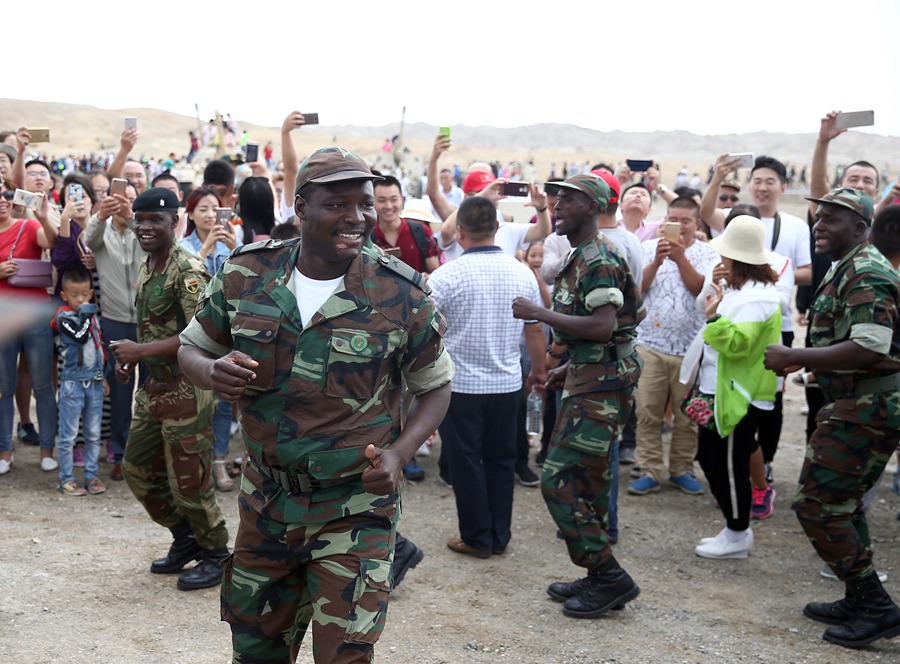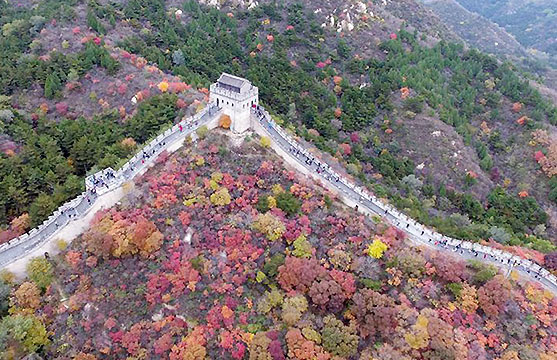PLA plays to its strengths in war games
 |
|
Soldiers from Zimbabwe dance at the games' opening ceremony in July. ZOU HONG/CHINA DAILY |
Unlike most soldiers, Zhang Lidong is trained to fight an invisible enemy.
"Our job is to remove the demon that normal people cannot see," the 25-year-old private said of his unit, which is trained to deal with chemical, biological and nuclear threats that could cause mass casualties. "That's why we call ourselves 'The Exorcists'," he added.
Zhang, whose antichemical warfare regiment is based in Beijing, commanded the two Chinese crews that competed in this month's International Army Games in the desert near Korla, Xinjiang Uygur autonomous region.
His team took part in the Safe Environment event between Aug 2 and 8, which saw each three-member crew drive a Chinese-made Warrior military SUV through an obstacle course while carrying out set tasks, including shooting targets, identifying toxic substances and detecting radioactive sources. All the soldiers wore protective gear and gas masks.
"We always train in the gear, so it isn't a burden in actual combat," Zhang said, although he conceded that the simulated scenarios were still very different to the real thing.
Zhang took part in the same event at the 2015 International Army Games in Russia. When he returned to China on Aug 13, he was sent directly to Tianjin, which had just been rocked by a massive blast caused by hazardous materials stored in a warehouse.
The late-night explosion started a blaze that burned for days, with eight secondary blasts reported on Aug 15. The final death toll was 173, according to official data.
"Although we carried out the same procedure (as at the army games) to identify chemicals at the scene in Tianjin, I was shocked by what I saw," Zhang recalled. "Everything was gray and lifeless. We also had the task of searching for bodies."
Colonel Ma Guojie, commander of the anti-chemical warfare regiment, said to ensure his soldiers are combat-ready, they are trained in units rather than as individuals.
"They need to be a strong fighting force first and foremost. Our goal is to create an anti-chemical warfare force that has outstanding technical and military skills," he said.
China established a new anti-chemical warfare regiment in Xinjiang this year.
Specialist soldiers need to be accurate when identifying dangers "because we don't get a second chance", said Private Gao Pan, 24, the driver on Zhang's team. He said crews also need to constantly upgrade their knowledge on toxic substances and antidotes to cope with the ever-changing combat environments.
"There is no time to think about death during a mission. We're always laser-focused on the procedure," Gao said.
Guo Zaizhu and Rao Jun contributed to this story.













